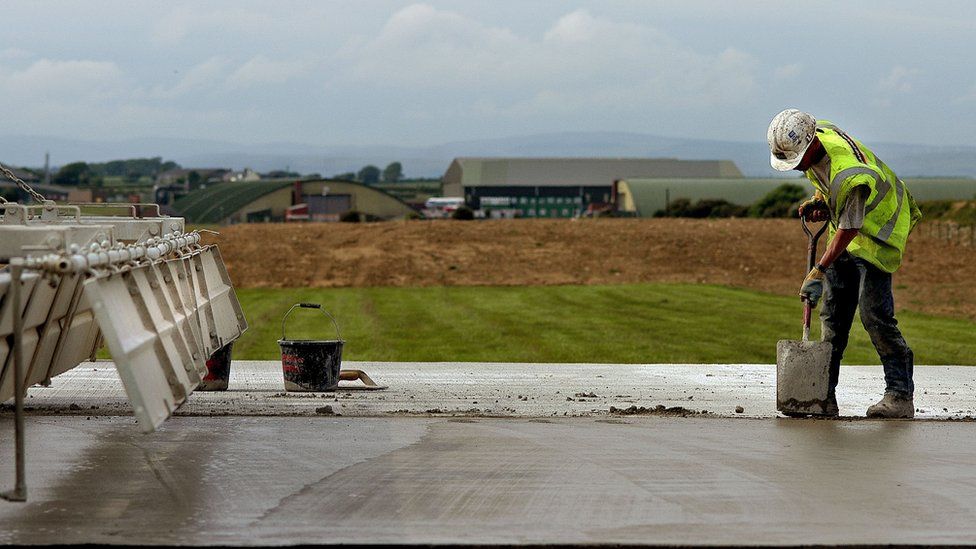Road planners accused of rigging carbon emissions rules
- Published

Road planners in England have been accused of rigging accounting rules to disguise the climate impact of new roads.
Environmentalists say the Department for Transport has under-counted CO2 from its road improvement programme.
That's because the DfT measures emissions against national CO2 targets, whilst measuring benefits of a new road against the local economy.
A Treasury spokesperson said this was a reasonable approach.
But critics say the resulting calculation exaggerates the benefits of new roads, whilst downgrading the negatives in terms of carbon emissions.
Chris Todd, director of pressure group Transport Action Network, told the BBC it proved the government has one rule for its £27bn road-building programme, external, and another rule for everything else.
He said: “This is like someone who's morbidly obese insisting they can gorge on another cream cake, because no single cake will have a 'material impact' on their well-being.”
The Treasury strongly rejects the allegation.
A spokesperson said it made sense to measure the carbon emissions from new roads against the UK’s entire carbon budget, because climate change is a global problem, whereas smaller road schemes offer local benefits.
'Uniquely unimportant'
But the objectors are motivated by a recent analysis from transport academic Phil Goodwin, an emeritus professor at University College London.
He says the DfT should employ the same standard for measuring the negatives of the roads programme as it uses to measure the positives.
“Consider,” he says, “if one calculated the total number of jobs generated by a specific scheme as a proportion of the total jobs in the economy."
“Any such calculation will always be open to words like ‘immaterial’ or ‘insignificant' - but this does not in the slightest prove that the aggregate effect really is unimportant.”
Prof Goodwin said the appraisal system made CO2 “uniquely unimportant”.
Ministers say their five-year roadbuilding plan will boost the economy.
A recent consultants’ report projected that the government’s roads programme will increase carbon emissions from the strategic road network by about 20 MtCO2, when they need to go down by about 167 MtCO2 to meet carbon targets.
A Treasury spokesperson said: “We reject this. The report is based on old project appraisals, and takes no account of our ambitious plans to decarbonise transport.
“We have assessed carbon impacts throughout the design of the roads programme using much more accurate methods, and expect the impact of new improvements to be around 0.27 million tonnes through to the end of 2032.”
But Prof Goodwin said the roads programme was still predicated on increased traffic, even though Transport Secretary Grant Shapps says we should be driving less.
The government argues that the advent of electric cars will solve the CO2 problem on the roads.
But its critics predict that the switch to 100% electric cars will come too late to meet CO2 targets. They also warn that battery cars take a huge toll on resources.
Follow Roger on Twitter @rharrabin, external
- Published23 March 2020